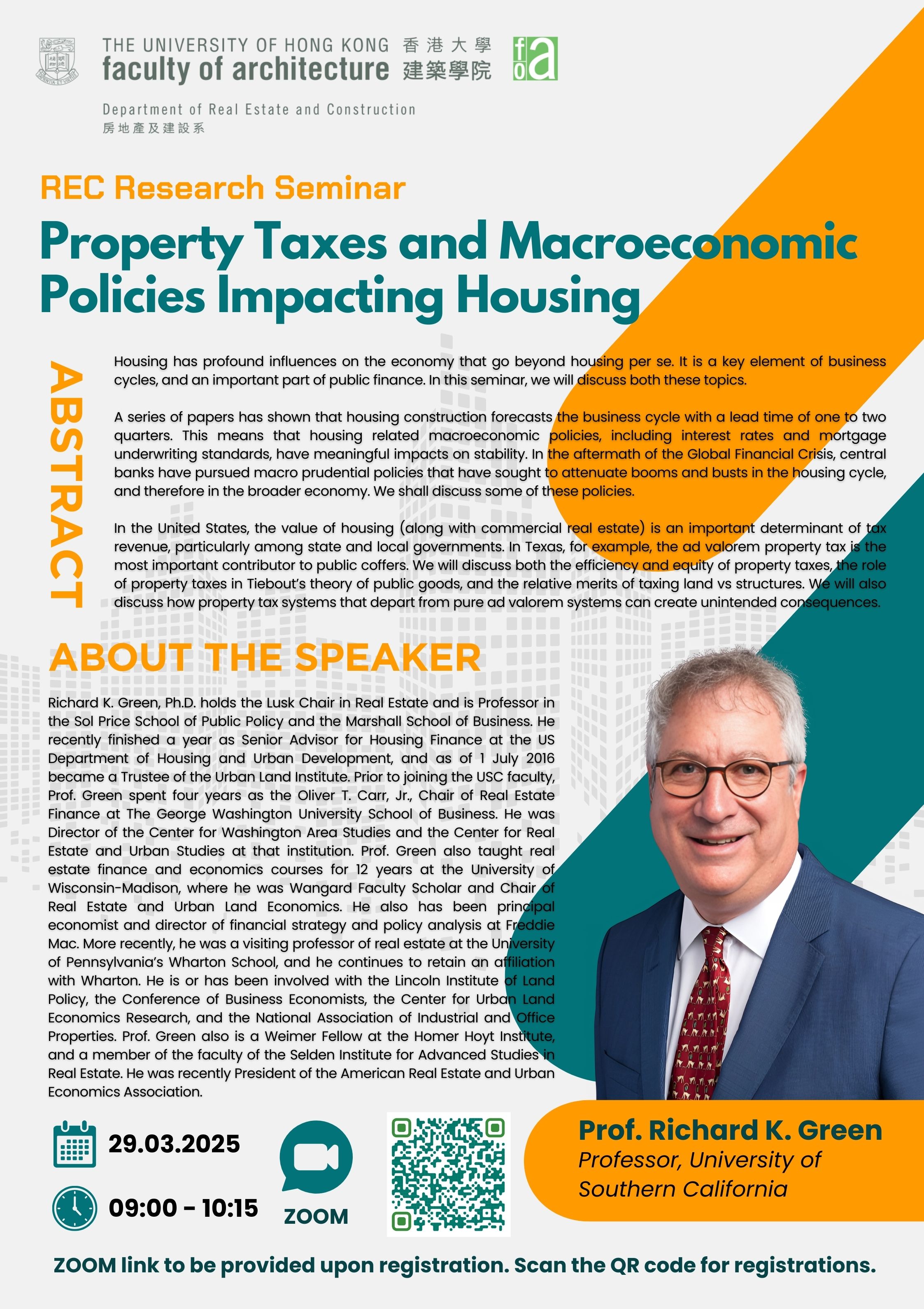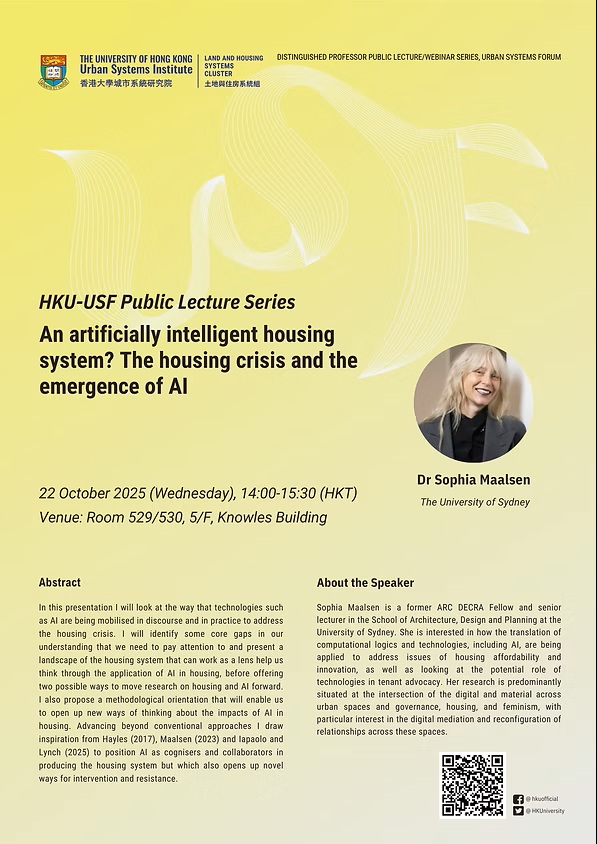
REC Research Seminar Series (29 March) – “Property Taxes and Macroeconomic Policies Impacting Housing” by Prof Richard Kent Green, University of Southern California
About the Speaker:
Richard K. Green, Ph.D. holds the Lusk Chair in Real Estate and is Professor in the Sol Price School of Public Policy and the Marshall School of Business. He recently finished a year as Senior Advisor for Housing Finance at the US Department of Housing and Urban Development, and as of 1 July 2016 became a Trustee of the Urban Land Institute. Prior to joining the USC faculty, Prof. Green spent four years as the Oliver T. Carr, Jr., Chair of Real Estate Finance at The George Washington University School of Business. He was Director of the Center for Washington Area Studies and the Center for Real Estate and Urban Studies at that institution. Prof. Green also taught real estate finance and economics courses for 12 years at the University of Wisconsin-Madison, where he was Wangard Faculty Scholar and Chair of Real Estate and Urban Land Economics. He also has been principal economist and director of financial strategy and policy analysis at Freddie Mac. More recently, he was a visiting professor of real estate at the University of Pennsylvania’s Wharton School, and he continues to retain an affiliation with Wharton. He is or has been involved with the Lincoln Institute of Land Policy, the Conference of Business Economists, the Center for Urban Land Economics Research, and the National Association of Industrial and Office Properties. Prof. Green also is a Weimer Fellow at the Homer Hoyt Institute, and a member of the faculty of the Selden Institute for Advanced Studies in Real Estate. He was recently President of the American Real Estate and Urban Economics Association.
Abstract:
Housing has profound influences on the economy that go beyond housing per se. It is a key element of business cycles, and an important part of public finance. In this seminar, we will discuss both these topics.
A series of papers has shown that housing construction forecasts the business cycle with a lead time of one to two quarters. This means that housing related macroeconomic policies, including interest rates and mortgage underwriting standards, have meaningful impacts on stability. In the aftermath of the Global Financial Crisis, central banks have pursued macro prudential policies that have sought to attenuate booms and busts in the housing cycle, and therefore in the broader economy. We shall discuss some of these policies.
In the United States, the value of housing (along with commercial real estate) is an important determinant of tax revenue, particularly among state and local governments. In Texas, for example, the ad valorem property tax is the most important contributor to public coffers. We will discuss both the efficiency and equity of property taxes, the role of property taxes in Tiebout’s theory of public goods, and the relative merits of taxing land vs structures. We will also discuss how property tax systems that depart from pure ad valorem systems can create unintended consequences.








Comments are closed